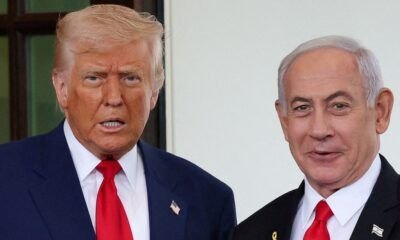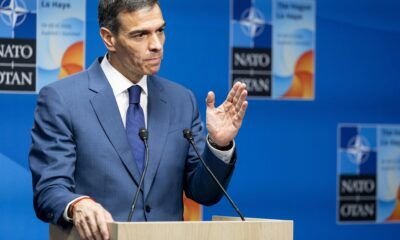INTERNACIONAL
Johnson pushes ‘aggressive’ timetable for House to pass Trump’s budget bill after GOP mutiny: ‘We cannot fail’
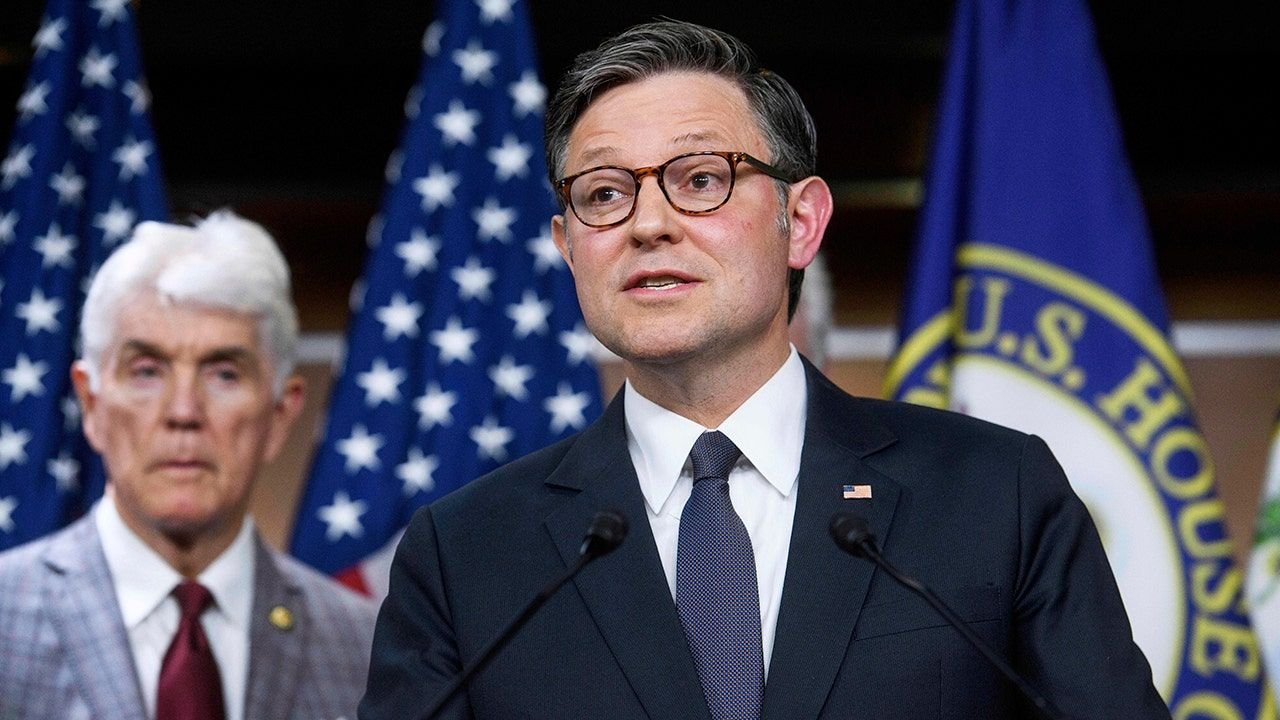
House Speaker Mike Johnson on Sunday defended the «aggressive» timetable he is pushing to advance President Donald Trump’s «big, beautiful bill,» saying the House remains on track to pass the «historic» legislative package by Memorial Day.
The House Budget Committee will reconvene at 10 p.m. Sunday night after a vote to advance the more than 1,100-page «One Big Beautiful Bill Act» failed Friday, when five Republicans sided with committee Democrats to sink Trump’s sweeping tax bill.
«We’re on track, working around the clock to deliver this nation-shaping legislation for the American people as soon as possible,» Johnson said during an appearance on «Fox News Sunday» regarding ongoing negotiations. «All 11 of our committees have wrapped up their work, and they spent less and saved more than even we’ve projected initially. This really is a once in a generation opportunity that we have here.»
WH STUDY WARNS 9 MILLION AMERICANS COULD LOSE HEALTH INSURANCE IN ‘MAJOR’ RECESSION IF TRUMP BUDGET BILL FAILS
House Speaker Mike Johnson, R-La., speaks during a news conference at the Capitol on May 6, 2025 in Washington, D.C. (AP Photo/Rod Lamkey, Jr., File)
After the bill advances through the budget committee, Johnson said the plan is to move the legislative package to the House Rules Committee by mid-week and then to the House floor by the end of the week «so we meet our initial, our original Memorial Day deadline.»
«It’s very important for people to understand why we’re being so aggressive on the timetable and why this really is so important,» Johnson said. «This is the vehicle through which we will deliver on the mandate the American people gave us during the last election. You’re going to have historic savings for the American people, historic tax relief for American workers, historic investments in border security.
«At the same time, we’re restoring American energy dominance, and we’re rebuilding the defense industrial base, and we’re ensuring that programs like Medicaid and SNAP are strengthened for U.S. citizens who need and deserve them and not being squandered away by illegal aliens and persons who are ineligible to receive them and are cheating the system,» he added.
Johnson reiterated that making Trump’s 2017 tax cuts permanent by 2026 is critical and stressed that the package also eliminates taxes on overtime and tips – a 2024 Trump campaign promise. He said it also includes new tax relief for seniors on Social Security and cuts taxes on «job creators, so that will help everybody across the country at the same time as incentivizing American-made production and manufacturing.»
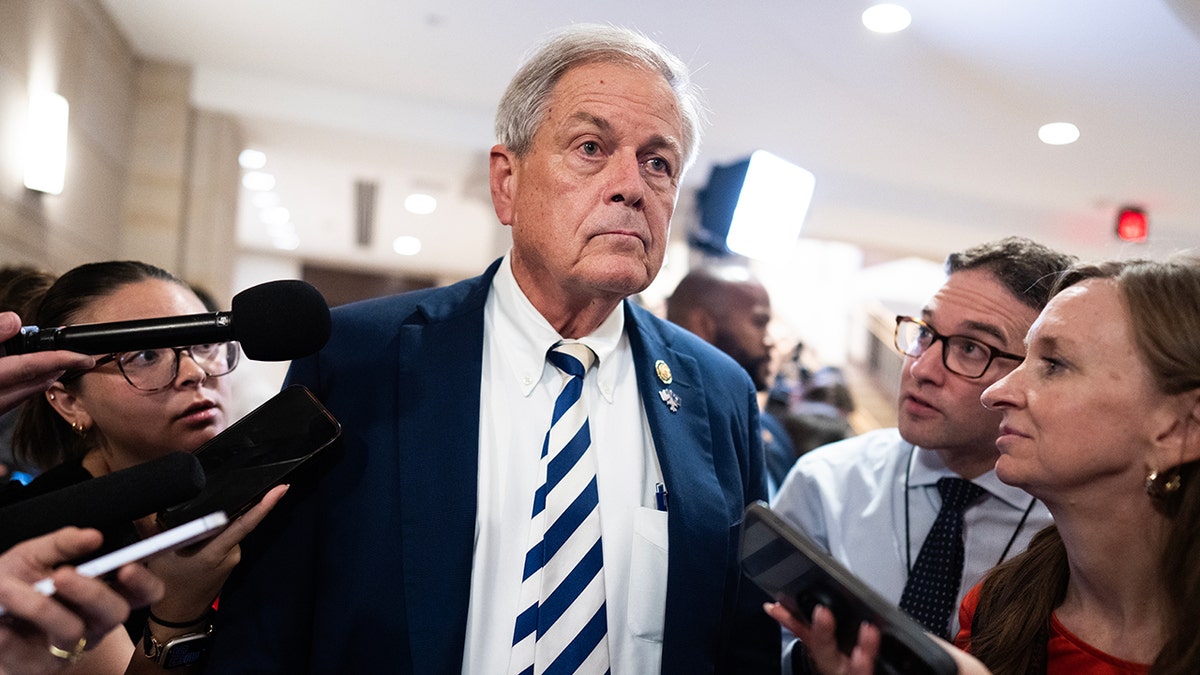
Rep. Ralph Norman, R-S.C., arrives for a meeting of House Republicans in the Capitol Visitor Center on the budget reconciliation bill on Thursday, May 15, 2025. (Tom Williams/CQ-Roll Call, Inc via Getty Images)
HANDFUL OF REPUBLICANS SINK TRUMP’S ‘BIG, BEAUTIFUL BILL’ IN KEY HOUSE COMMITTEE
«This is a big thing. We cannot fail, and we’ll get it done for the American people,» Johnson said.
South Carolina Rep. Ralph Norman and Texas Rep. Chip Roy are among critics from Johnson’s own party who say the speaker is not serious about cutting spending. They want work requirements for able-bodied adult Medicaid recipients to be implemented sooner than 2029 – a view Johnson told «Fox News Sunday» that he shares, but the speaker added there is concern over the ability of the states to «retool their systems and ensure the verification process» can be enforced.
«We’re working through all those details, and we’ll get it done, but I’ll tell you what, this is the largest spending reduction in at least three decades, probably longer. It’s historic,» Johnson said, adding that the package has the support of Office of Management and Budget Director Russ Vought, as well as «nearly 500 organizations across the conservative spectrum» including fiscally responsible groups who believe «that we’ve got to turn the tide in spending.»
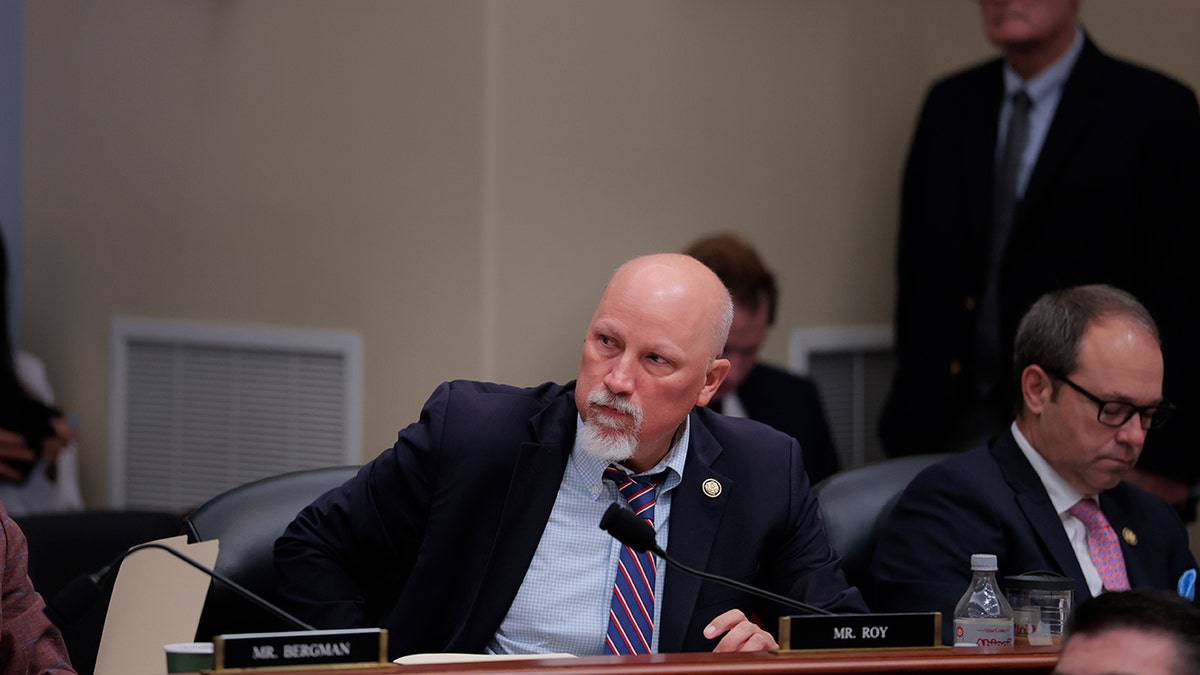
Rep. Chip Roy, R-Texas, listens during a mark-up meeting with the House Budget Committee on Capitol Hill on May 16, 2025 in Washington, D.C. (Anna Moneymaker/Getty Images)
«We are. This is our opportunity to do it. It’s once in a generation, as I’ve said, and we can’t squander it,» Johnson said.
The speaker said that while he is confident he will be able to reach a compromise on the Medicaid work requirement to squash internal disputes, Republican leadership does not expect a single Democrat to vote for the bill.
CLICK HERE TO GET THE FOX NEWS APP
«Which means that they will be on record apparently supporting the largest tax increase in U.S. history, which is what will happen by default after the end of this year if we do not get this job done. We have to accomplish this mission, and we will.,» Johnson said.
Donald Trump,House Of Representatives,Republicans,Mike Johnson
INTERNACIONAL
Panorama Internacional: guerra y paz, el orden mundial a golpe de mouse
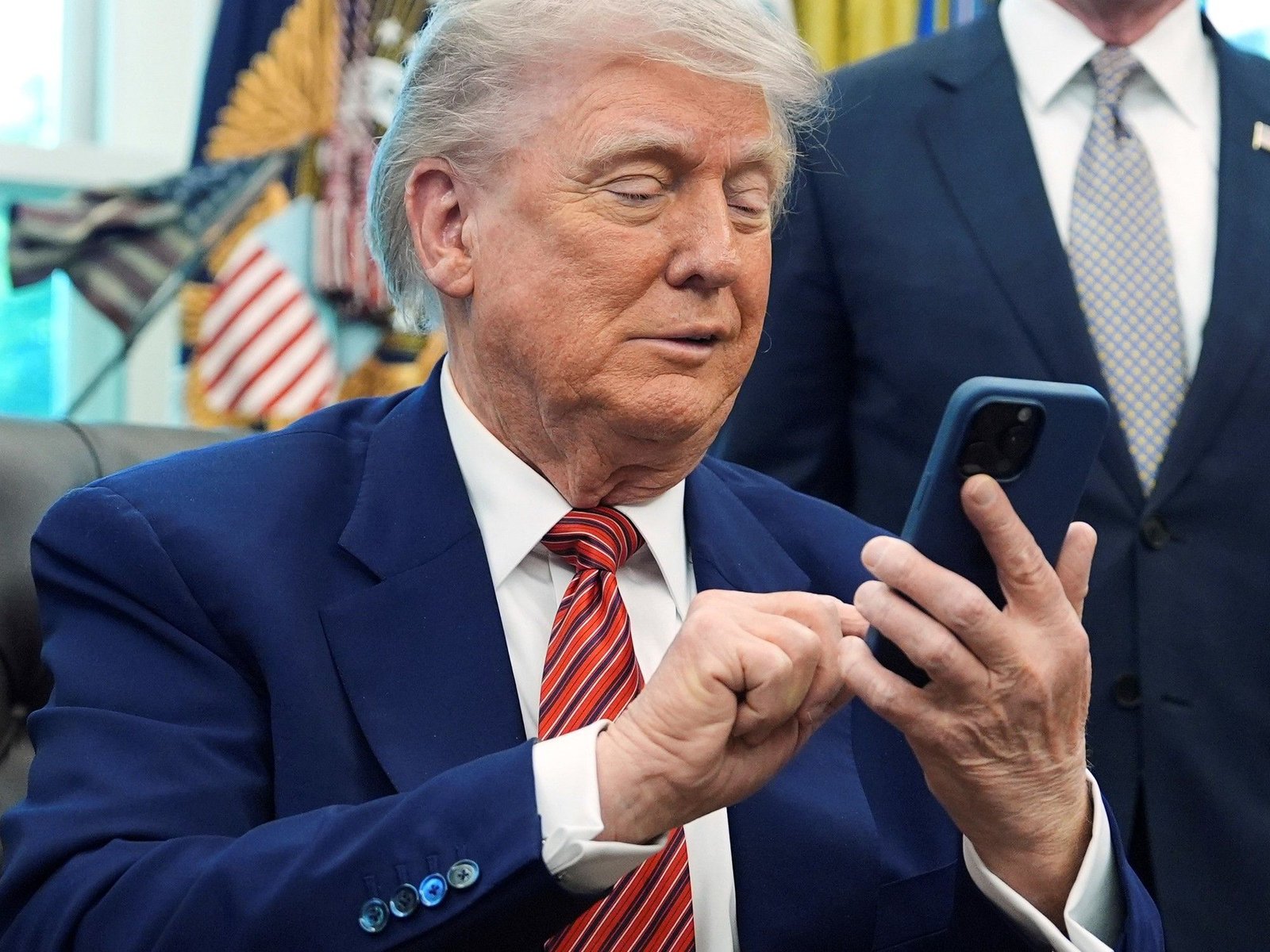
Costos y beneficios
Regreso al punto de partida
INTERNACIONAL
‘Presidential incapacity’: Senate Republican seeks paper trail of Biden’s autopen use
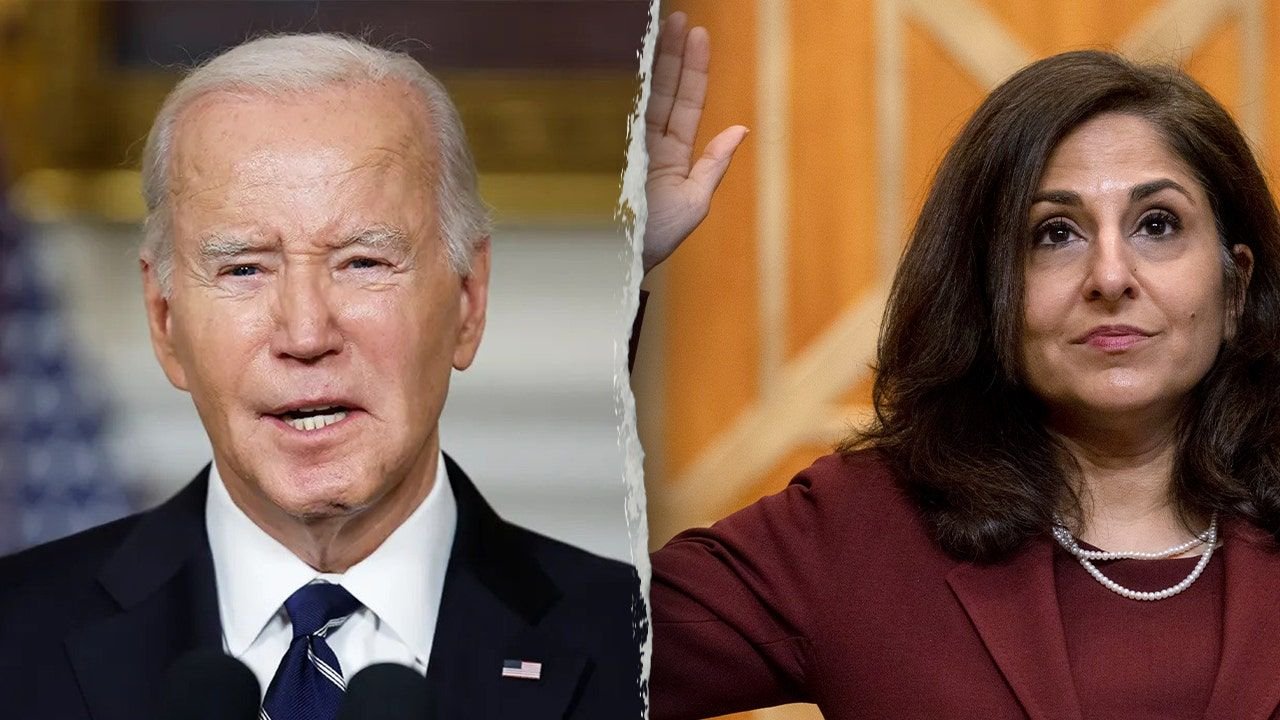
NEWYou can now listen to Fox News articles!
FIRST ON FOX: A Senate Republican wants to build a paper trail of former President Joe Biden’s autopen usage with the end goal of calling more hearings, passing legislation or amending the Constitution to best address «a mentally incapacitated president.»
Sen. Eric Schmitt, chair of the Senate Judiciary Subcommittee on the Constitution, is requesting special access under the Presidential Records Act to a trove of Biden-era documents and memos that chronicle his usage of an autopen.
In a letter to Secretary of State and Acting National Archivist Marco Rubio exclusively obtained by Fox News, Schmitt argued that creating a paper trail of key directives made toward the end of his presidency would help in «deciding which legislative remedy is most appropriate.»
TOP BIDEN AIDE ADMITS TO CONGRESS SHE DIRECTED AUTOPEN SIGNATURES WITHOUT KNOWING WHO GAVE FINAL APPROVAL
Neera Tanden, the former director of Biden’s Domestic Policy Council, testified for more than five hours Tuesday behind closed doors as part of House Republicans’ investigation into the former president’s mental acuity and his use of an automatic signature tool. (Getty Images)
«In particular, the increased use of the autopen to sign pardons, executive orders, and other documents as his Presidency progressed became a poignant symbol of President Biden’s mental decline and has created questions about the validity of those orders and pardons if President Biden did not direct the use of the autopen,» he wrote.
Schmitt requested access to a slew of documents, including memos about procedures for usage of the autopen, who was granted authority to use the autopen and emails from staff authorizing or requesting authorization for autopen usage.
SENATE HEARING ON WHO WAS ‘REALLY RUNNING’ BIDEN WHITE HOUSE KICKS OFF WEDNESDAY
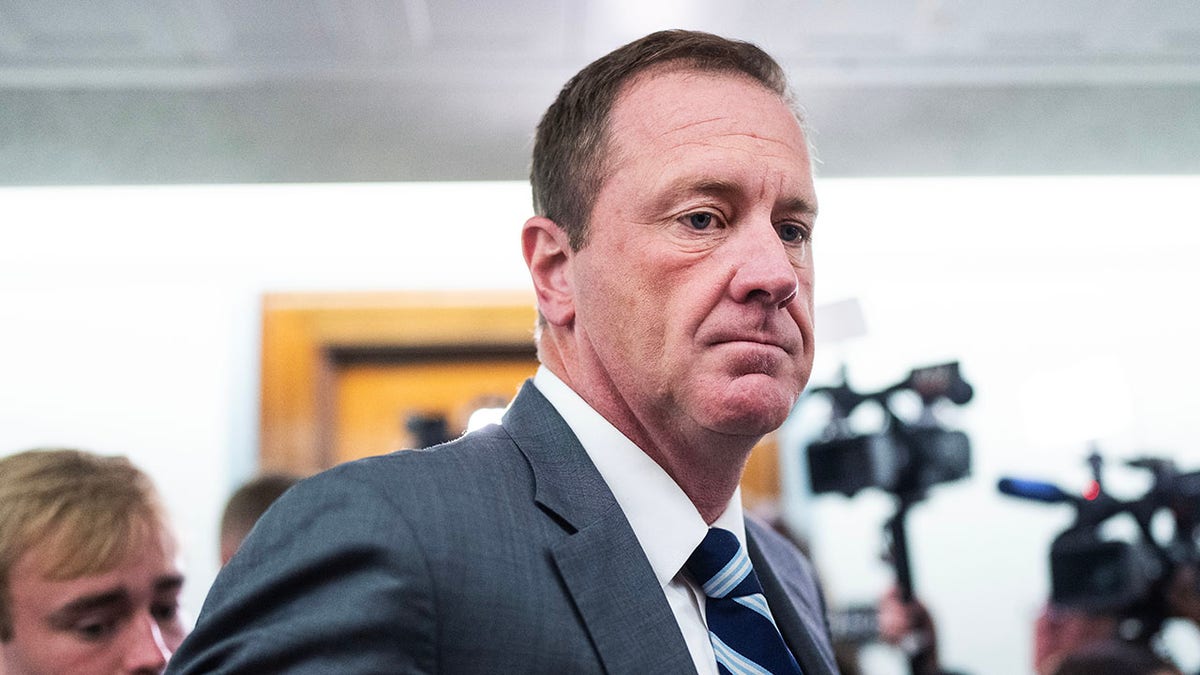
Sen. Eric Schmitt, R-Mo., arrives for a Senate Judiciary Committee hearing in Dirksen building Tuesday, June 17, 2025. (Getty Images)
He also requested access to all White House records after Nov. 1, 2024, that refer or relate to presidential pardons; that prioritize briefing books, memos and decision memos for pardons; and, eventually, access to all White House records after Nov. 1.
«With that information, the subcommittee will be better positioned to ensure that any potential proposed amendment will be sufficiently comprehensive so as to address any plausible contingency concerning a mentally incapacitated President,» Schmitt wrote.
«It would be challenging enough to amend the Constitution once — much less more than once if it then subsequently turned out not all contingencies around presidential incapacity were adequately considered.»
Schmitt’s letter comes after the Senate Judiciary Committee’s hearing on Biden’s alleged mental decline while in office and how the autopen could have played a central role in his inner circle’s alleged attempt to skirt the Constitution while continuing to carry out the duties of the office.
EX-WHITE HOUSE OFFICIALS TO TESTIFY ON WHO ‘REALLY RAN THE COUNTRY’ DURING BIDEN ERA
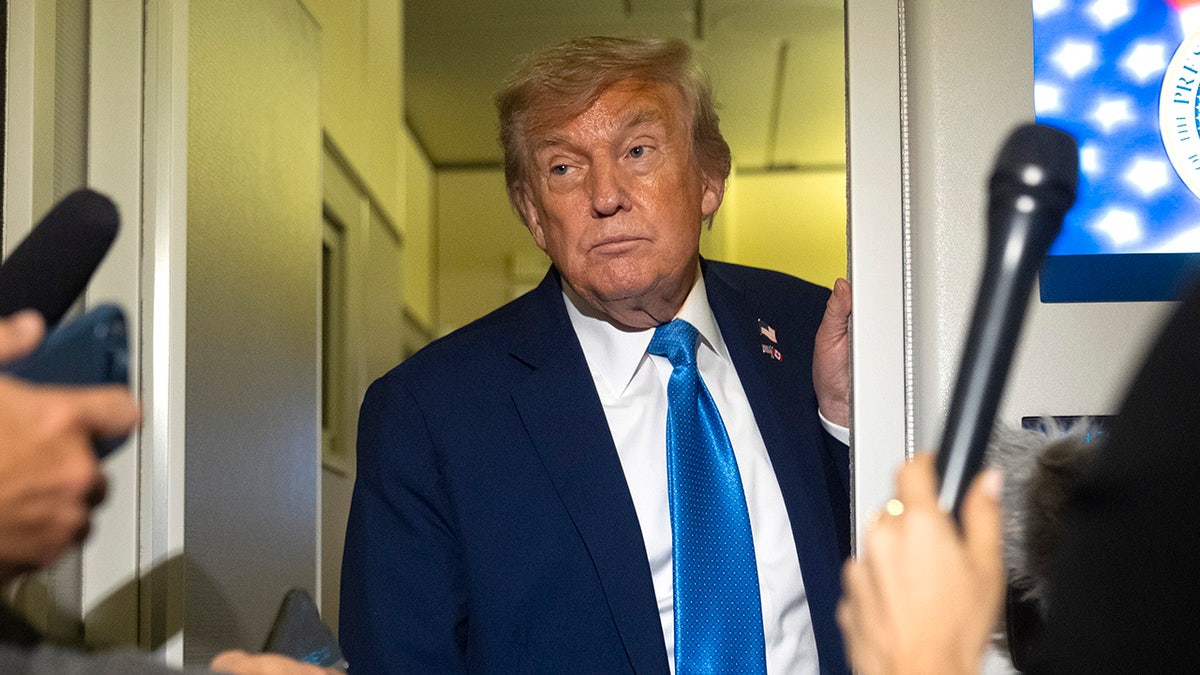
President Donald Trump speaks with reporters while flying aboard Air Force One en route from Calgary, Canada, to Joint Base Andrews, Maryland, late Monday, June 16, 2025. (AP Photo/Mark Schiefelbein)
It also explicitly mentions the closed-door, transcribed hearing with Biden’s former director of the Domestic Policy Council, Neera Tanden, conducted by the House Oversight Committee this week.
A source told Fox News Digital that during the transcribed interview, which lasted five hours, Tanden testified she had «minimal interaction with President Biden» in her role as staff secretary and that to obtain autopen signatures, she would send decision memos to members of Biden’s inner circle.
She said during the interview she was not aware of what actions or approvals happened between the time the memo was sent out and returned with approval.
However, Tanden’s opening statement, shared with Fox News Digital by her lawyer, Michael Bromwich, said that, as staff secretary, she was responsible for «handling the flow of documents to and from the President» and that she was authorized to direct that autopen signatures be «affixed to certain categories of documents.»
«We had a system for authorizing the use of the autopen that I inherited from prior Administrations,» Tanden said. «We employed that system throughout my tenure as Staff Secretary.»
She was later named director of Biden’s Domestic Policy Council and said she was no longer responsible for the flow of documents and was no longer involved in decisions related to the autopen.
«I would note that much of the public discussion on the subject matter of this hearing has conflated two very different issues: first, the president’s age and second, whether President Bident was in command as President,» she said. «I had no experience in the White House that would provide any reason to question his command as President. He was in charge.»
CLICK HERE TO GET THE FOX NEWS APP
Schmitt requested that access to the swathe of memos and communications be granted no later than July 16.
«It is important for this subcommittee to have a clear picture of President Biden’s decision-making capacity at the end of his presidency and to know the extent to which members of his inner circle possibly usurped the President’s decision-making authority,» he wrote.
Fox News Digital’s Liz Elkind contributed to this report.
INTERNACIONAL
China confirmó el acuerdo sobre tierras raras y exportaciones con EEUU tras una nueva ronda de negociaciones en Londres

China y Estados Unidos alcanzaron un acuerdo definitivo sobre la exportación de bienes estratégicos, incluidas las tierras raras, tras concluir su última ronda de negociaciones en Londres. Así lo confirmó este viernes el Ministerio de Comercio chino mediante un comunicado oficial, en el que informó que ambos gobiernos “mantuvieron una comunicación cercana” tras el encuentro y que “con aprobación, ambas partes confirmaron los detalles del acuerdo”.
El documento aclara que, como parte del entendimiento, “China revisará y aprobará las solicitudes de exportación de bienes controlados que cumplan con las condiciones con arreglo a la ley”, en una clara referencia a las restricciones impuestas por Beijing a principios de abril sobre la venta de minerales críticos como las tierras raras. Estos recursos son fundamentales para industrias clave, como la defensa, la tecnología avanzada o el sector automotriz.
A cambio, Estados Unidos se compromete a eliminar “una serie de medidas restrictivas” adoptadas contra China, aunque el comunicado no detalla cuáles serán levantadas ni en qué plazos. Esta medida corresponde a lo pactado en la conversación del 5 de junio entre el presidente chino Xi Jinping y su homólogo estadounidense Donald Trump, que habilitó la reanudación de los contactos comerciales a nivel técnico.

“Se espera que EEUU y China encuentren un término medio y cumplan con los importantes consensos y requisitos alcanzados por los jefes de Estado”, señala el comunicado, refiriéndose al diálogo presidencial que facilitó la reactivación de las negociaciones formales en la capital británica.
La confirmación de este acuerdo por parte del gobierno chino se produce un día después de que Trump asegurara que “Estados Unidos firmó un acuerdo con China” en una declaración pública, aunque sin ofrecer precisiones. Según había adelantado el mandatario republicano a mediados de junio, el pacto incluye un arancel del 55 % impuesto por EEUU a productos chinos y un 10 % recíproco por parte de Beijing sobre bienes estadounidenses.
El acuerdo de Londres sella un marco de cooperación basado en el “consenso” alcanzado en la llamada presidencial, pero se mantenía pendiente de la ratificación final de ambos líderes. La firma llega tras una serie de tensiones renovadas, motivadas por acusaciones cruzadas de incumplimiento del pacto alcanzado en mayo en Ginebra, que dio origen a una tregua comercial de 90 días.
En el marco de ese entendimiento previo, China había reducido sus aranceles a productos estadounidenses del 125% al 10%, mientras que Washington rebajó los suyos del 145% al 30% sobre bienes chinos. Sin embargo, ambas partes se acusaron mutuamente de violar el acuerdo: Beijing denunció restricciones estadounidenses sobre la exportación de chips de inteligencia artificial y software de diseño de semiconductores, así como medidas migratorias contra estudiantes chinos. Washington, por su parte, criticó las limitaciones chinas sobre la exportación de tierras raras.

La disputa comercial entre ambos países se intensificó desde el regreso de Donald Trump a la Casa Blanca, con una renovada ofensiva arancelaria que reactivó la guerra comercial iniciada en 2018. Esta escalada ha derivado en una situación de embargo parcial, con efectos globales sobre cadenas de suministro y mercados estratégicos.
Con este nuevo acuerdo, China y Estados Unidos buscan desescalar las tensiones mediante compromisos mutuos en comercio y exportaciones clave. No obstante, aún queda por determinar cómo se implementarán las medidas anunciadas y si ambas partes cumplirán los plazos y condiciones fijados. Por ahora, el entendimiento representa un paso más en la volátil relación bilateral entre las dos principales economías del mundo.
(Con información de EFE y AFP)
Asia / Pacific,LIANYUNGANG
-

 INTERNACIONAL3 días ago
INTERNACIONAL3 días agoLa guerra en Oriente Medio: el Pentágono contradice a Donald Trump y asegura que el bombardeo a Irán solo retrasó su plan nuclear un par de meses
-
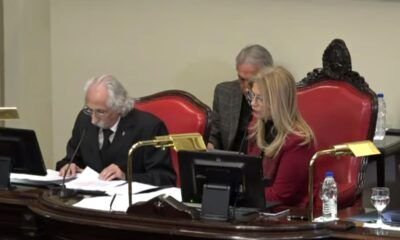
 POLITICA2 días ago
POLITICA2 días agoCon un desempate de Magario, el Senado bonaerense aprobó la reelección indefinida de los legisladores provinciales
-

 POLITICA3 días ago
POLITICA3 días agoRenunció la jueza Julieta Makintach en la antesala de un juicio político en su contra




